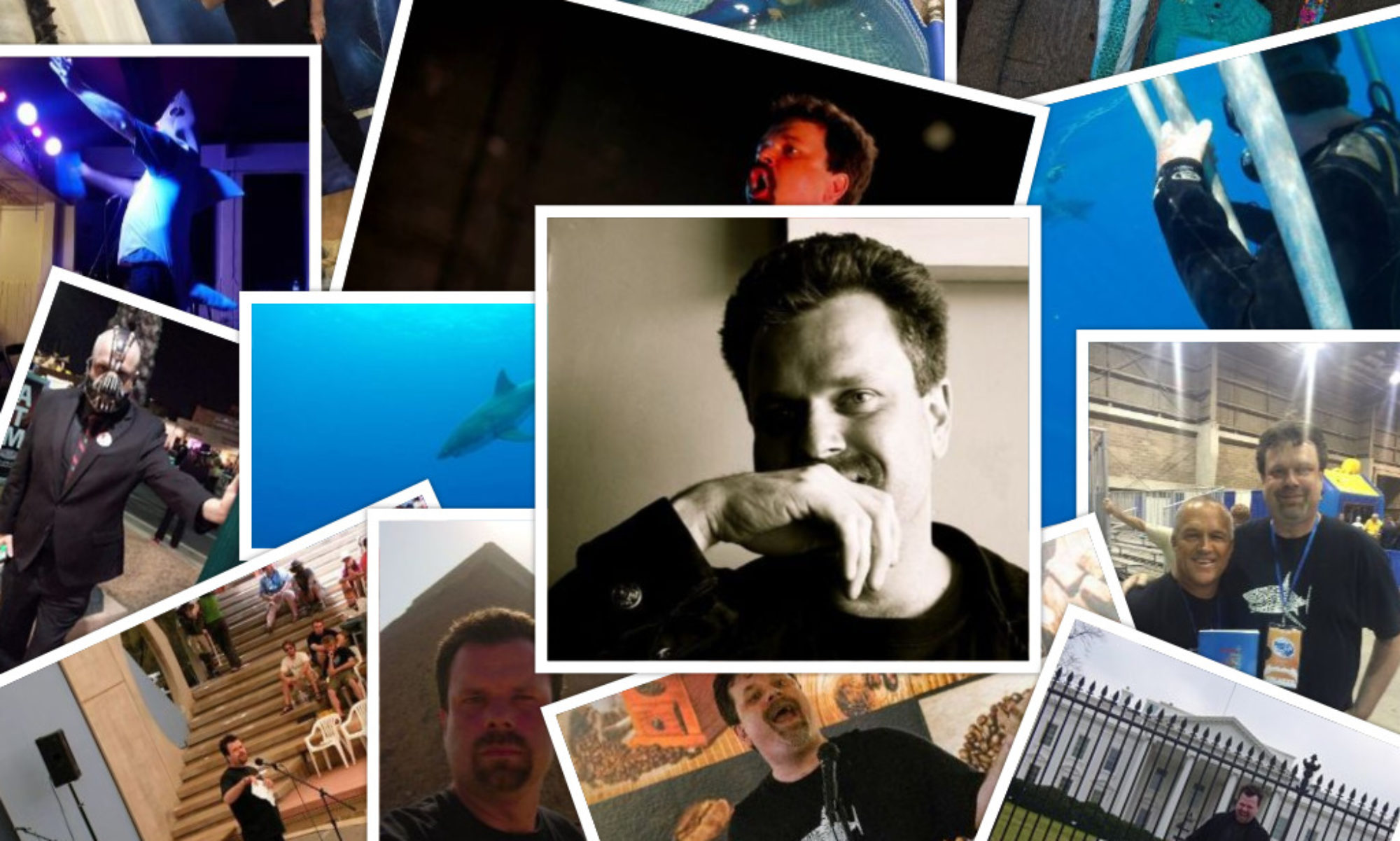The one thing that is very hard for a person who loves the ocean is the idea of eating wildlife, aka fish. I touch on it a little in my poem “Suicide Bomber“, that everything from the lowly crab to the mighty marlin is classified as “seafood”, as if there is some common thread between these animals, beyond the fact that they both live in the ocean.

Image via Monterey Bay Aquarium
As humans, we have always tried to hide our predatory nature by giving the animals we kill euphemisms so we can create the cognitive dissonance that allows us to see a “cow” as a living breathing thing and “beef” as something to be bought by the pound. Chicken, pigs, deer? Poultry, pork, venison. Grouper, snapper, swordfish? It is rare that they wouldn’t be sold by their common names. After all, chicken? You don’t care if it was a prize winning Rhode Island Red or Chicken #12-567a. But if you’re paying for grouper, it better goddamn well be grouper. Call it what it is. And I want my grouper swimming, making a bunch of little grouper, and keeping the reefs healthy. Like Dr. Sylvia Earle says: “Think of them as wildlife, first and foremost”.

So, as a diver, and ocean activist, I’ve basically had to cut seafood out of my diet. As much as I love tuna, and shrimp, and snapper, I’ve cut the latter two out of my diet, and the former… There are groups that measure whether or not the fish, crustacean, or mollusk on your plate is OK for the marine environment. Groups such as the Marine Stewardship Council (although they’ve taken some hits recently, even given the SharkEnemy award by SharkProject, a shark conservation group) and the Monterey Bay Aquarium’s Seafood Watch which rates sustainability, not just on the target species but any damage the fish’s home. So when I get the hankering for tuna salad, I buy and use only American Tuna brand tuna. It’s pole-and-troll artisinal fishing that supports a fishing community out of San Diego. It’s even green-listed by Greenpeace! Star-Kist tuna is emphatically NOT. It’s red-listed. By like everyone.

But still a hypocrite here. On the 2015 expedition to Isla Guadalupe, the yellowtail tuna were as fun to watch as the sharks. One of the school, who with I named “Whitetail” because of it’s battered caudal fin was a favorite of mine – really aggressive towards the white sharks in trying to snatch away chunks of fish that the great whites were also trying to get. When the scientists at the research station tried to catch a tuna to supplment their diet, I was worried Whitetail might be caught, and kept my happiness to myself when the tuna snapped the line and got away.
Next week, I’ll be going to Fiji, to dive with Shark Angels, and while there, I’ll be participating in the local Fijian economy – which fishing is a major component, but also cattle, pigs, goats. So, there’ll be menu options, but as much as there are issues with overfishing facing the world, there are also huge issues with climate change, which also affect Fiji, so much so that Prime Minister Voreqe Bainimarama is personally lobbying Trump to stay in the Paris Agreement.

Climate change, of course, is not just caused by cars and coal plants, but also the animals we cultivate for food. In this month’s Sierra, the magazine of the Sierra Club, there’s a graphic on how many kilos of carbon are released for each kilo of consumed food. Cows, pigs, lamb (holy cow, lamb, 39 kilos? What are you eating?) are high up there, chicken and unsurprisingly, tofu, are low on the scale.

So, as an ocean AND climate activist, but as someone who recognizes that indigenous, developing communities has a right to self-determination and economic prosperity, I’m kind of unsure of what I’m going to do when it comes to how I’m going to eat. The Seafood Watch app can only tell me so much about the local fishing communities that will be supplying my food, and the locals are not ignorant to the challenges overfishing presents to their economic future (and the problem is not subsistence or local fleet fishing, but the corporate factory fishing fleets out of China, the Philippines, Taiwan, etc.)…. but do I eat fish? I enjoy it, it’s part of the economic exchange that drives the Fijian economy, and it’s culturally important. It seems like my environmental activism might be seen as colonial dickishness.
I do expect to be eating lots of chicken (yes, there is the idea of vegetarianism and veganism but that’s a whole ‘nother post).
